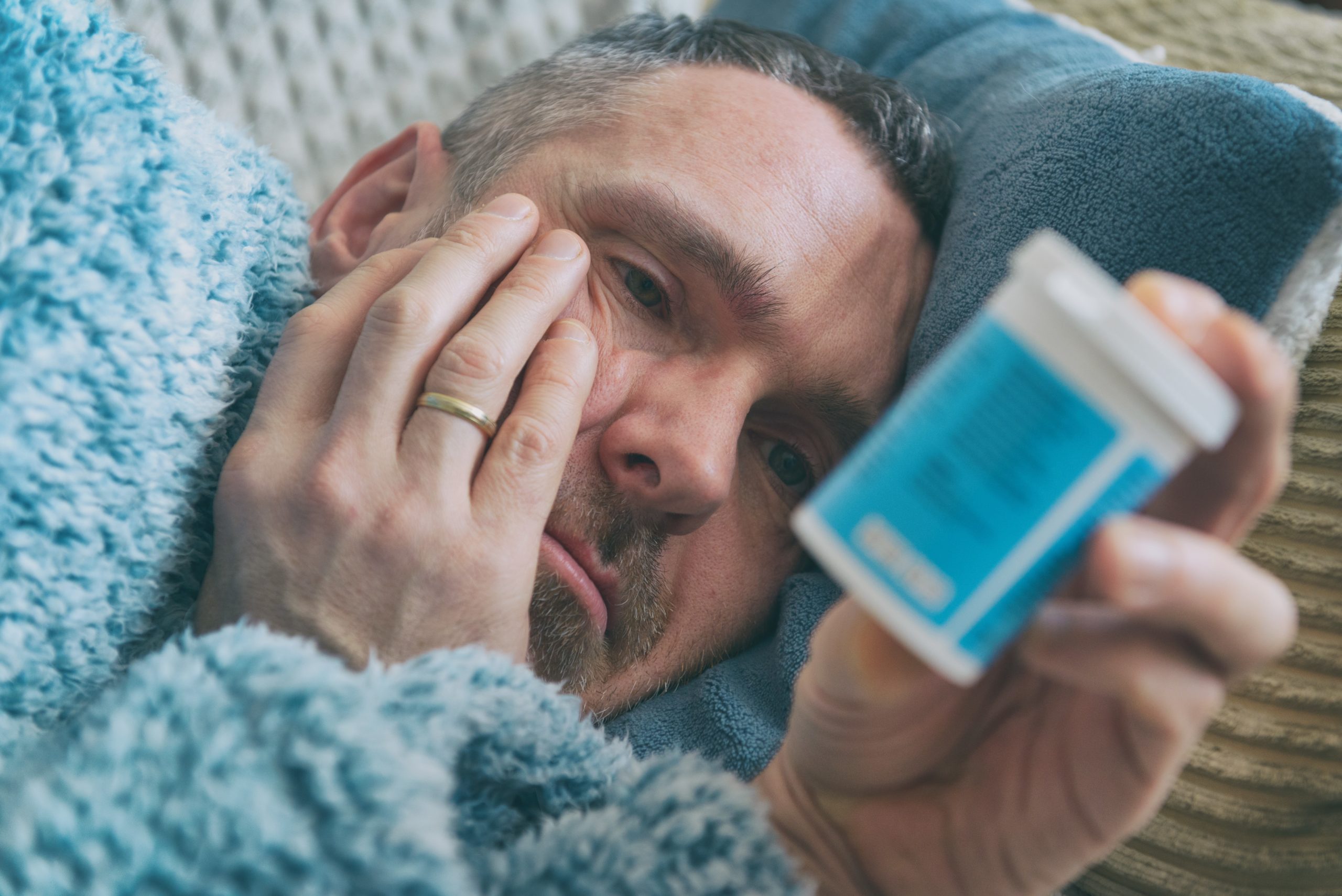Antidepressant medications are prescription-only drugs that treat mental health disorders that entail depressive symptoms. There are several different types of antidepressants and each one of them works differently to treat symptoms of depression. It can be a difficult process for individuals to find the right antidepressant medication. An antidepressant medication that works well for one person might not work for another. It can also be a trial-and-error process when it comes to finding the right dosage of medication. If a dose is too low it may not work at all, or if a dose is too high it may induce unwanted side effects. It is important to understand the signs your antidepressant dose is too low so that you can properly talk to your doctor about why your medication may not be working.
Arbor Wellness can help you determine the right antidepressant for your unique needs with our genetic testing for mental health. Our residential and outpatient programs provide the vital, effective care you need to ensure better mental health. Visit our admissions page or give us a call at 615-246-7275 now.
Signs Your Antidepressant Dose Is Too Low Or Isn’t Working
At Arbor Wellness, in Nashville, TN, we understand that individuals who have mental illness benefit from both medications and therapy. As with other illnesses, it’s a process to find the right treatment in order to properly manage an individual’s symptoms. Feeling as though your medications are not working at all, or noticing that you are still having trouble managing your symptoms, are both signs that your antidepressant dose is too low, or even that it may not be working at all for you. Some of the biggest warning signs that your antidepressant dose is too low include:
You Feel Better Initially, But Then It Stops
Antidepressants affect the neurotransmitters and chemical balances in the brain. Some of these chemical messengers include dopamine, serotonin, and norepinephrine. Normally it takes at least one week for antidepressant medications to begin to take effect. At about six to eight weeks the medication’s effectiveness peaks.
If someone immediately feels better after starting an antidepressant, then it could be what is known as a placebo effect. A placebo effect is when a patient’s mind thinks they feel better by taking a medication. However, in all reality, the medication has not begun to take effect yet. Once the brain recognizes the placebo effect, then it starts to wear off. This can lead to one of two things: either the medication actually begins to take effect, or the medication never takes effect. When the placebo effect occurs, it can be extremely confusing for people. Some people may think the medication has suddenly stopped working. However, it normally indicates that the dosage is not right or the medication was not right for their body’s needs.
Side Effects
Some people might experience side effects that are more pronounced when the dose is too low. This can vary depending on the specific medication being used.
Worsening of Symptoms
If your depressive symptoms worsen or become more frequent, it could be a sign that your current dose is not sufficient.
Your Symptoms Have Not Improved After A Couple Of Months
Antidepressant medications should improve systems after three months of taking them as prescribed by a doctor. If you have not noticed an improvement in your symptoms then it could mean that your antidepressant dose is too low. It can also mean that you aren’t taking the right type of medication for your body’s needs. It is important to speak with a psychiatrist if you are not seeing any improvements after the first few months on a new antidepressant medication.
Your Dose Becomes Less Effective
 One of the other signs your antidepressant dose is too low is if you are noticing that the effectiveness of your medication has begun to decrease. If you are on medication that previously helped you remain stable, but you are now noticing flare-ups of previous symptoms, it could be time to increase your dosage. It is normal for people to build up a tolerance to medication over time. As a result, the medication becomes less effective. For individuals who are on antidepressants, this could mean that they begin to notice chronic fatigue, feelings of hopelessness, mood swings, sleep issues, or any other previous symptoms that they may have experienced before. If you or your loved one is noticing symptoms of depression returning, it is important to speak with a licensed psychiatrist, or mental health program as soon as possible. If the symptoms are left ignored, it could lead to the more dangerous side effects of depression such as self-harm or suicide.
One of the other signs your antidepressant dose is too low is if you are noticing that the effectiveness of your medication has begun to decrease. If you are on medication that previously helped you remain stable, but you are now noticing flare-ups of previous symptoms, it could be time to increase your dosage. It is normal for people to build up a tolerance to medication over time. As a result, the medication becomes less effective. For individuals who are on antidepressants, this could mean that they begin to notice chronic fatigue, feelings of hopelessness, mood swings, sleep issues, or any other previous symptoms that they may have experienced before. If you or your loved one is noticing symptoms of depression returning, it is important to speak with a licensed psychiatrist, or mental health program as soon as possible. If the symptoms are left ignored, it could lead to the more dangerous side effects of depression such as self-harm or suicide.
When Do Antidepressants Start To Work?
Antidepressants normally begin to start working 1 to 2 weeks after beginning to take them. It is important to take the medication as prescribed and to make sure not to miss a dose. Antidepressants may initially cause some uncomfortable side effects. It is important to discuss these side effects with your doctor and to continue taking the medication if your doctor suggests doing so. Some initial, common, and temporary side effects of antidepressants include:
- Sedation
- Fatigue
- Insomnia
- Headaches
- Dry Mouth
The temporary side effects may be uncomfortable, but if the medication is the right type of medication for you then you will start to feel its benefits. Antidepressants could improve overall mood, concentration, and productivity.
When Should I Increase My Antidepressant Dose?
If you’ve been taking antidepressants for at least four weeks, you may need to consult with a psychiatrist or doctor. It’s important to discuss what’s going on before you change any type of dose you are taking. In addition, taking higher doses of antidepressants without consulting a mental health professional can cause overdose and serotonin syndrome. They will consider various factors, such as your medical history, the specific medication you’re taking, your current dose, potential side effects, and any possible interactions with other medications you may be taking.
Mental Health Treatment In Nashville, TN
At Arbor Wellness, in Nashville, TN, we offer Psychiatry in Nashville in order to make sure that our clients are taking the correct medications and dosages that work the best for their individual body’s needs. We believe that a combination of both therapy and medication is often the most successful way of treating severe mental health illnesses. If you choose to enter into one of our programs, we closely monitor your symptoms in order to watch for the signs your antidepressant dose is too low, too high, or simply ineffective. With multiple levels of care, our wide range of programming includes:
- Residential Mental Health Treatment
- Partial Hospitalization Programming
- Intensive Outpatient Programming
- Alumni Programming
We understand that managing mental illnesses, such like depression, is not an easy task. Here at Arbor Wellness, we are here every step of the way to support you in your recovery and help you get your life back on track. If you or a loved one is suffering from depression or any other mental illness, call our admissions team today to learn more about how we can help you.










